The symptoms of gastroesophageal reflux disease make the patient uncomfortable, leading to loss of appetite and loss of appetite. This will further affect general health. Supplementing with good, healthy foods is one of the solutions recommended by doctors for patients to relieve their condition. So what should you eat if you have gastroesophageal reflux, let’s find out with My Auris through the following article.
What should you eat if you have gastroesophageal reflux?
Gastroesophageal reflux disease is a common disease that can occur in any person and at any age. The disease is a condition of occasional or frequent reflux of gastric juice into the esophagus. The disease has typical signs such as heartburn, belching, belching, nausea, discomfort, etc. Therefore, having a healthy, appropriate diet is extremely important. So what should you eat if you have gastroesophageal reflux?
In addition to complying with treatment regimens and nutritional advice from doctors, everyone should immediately pocket some good foods for people with gastroesophageal reflux.
Ginger and turmeric
Ginger and turmeric are one of the indispensable spices in a number of dishes from the past to present. At the same time, these are also two ingredients commonly used to treat gastric reflux or stomach-related diseases. Thanks to their natural anti-inflammatory properties, ginger and turmeric bring many benefits to digestion as well as a number of other diseases.
Currently, scientists have researched and successfully extracted the active ingredient nano curcumin from turmeric using nanotechnology, helping to increase the treatment effectiveness 40 times compared to using regular turmeric.
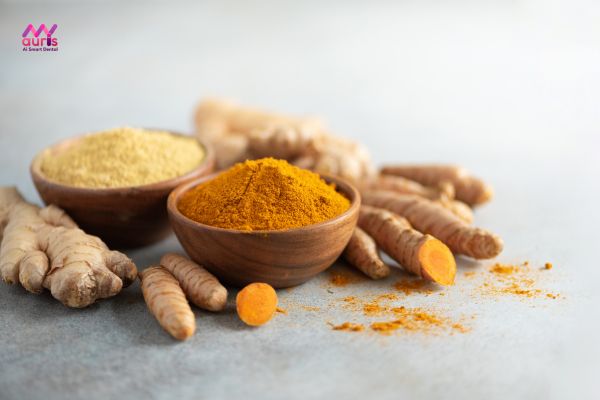
Foods rich in fiber, legumes
Beans and beans are not only rich in fiber but also rich in vitamins, minerals, antioxidants and amino acids necessary for the body. Using beans and peas is very good for people with gastric reflux. However, they should not be overused because they can cause bloating because they contain a lot of carbohydrates. To reduce this phenomenon, you can soak the beans overnight before processing until the beans become softer.
Some common types of beans that should be added: soybeans, soybeans, green beans, black beans, kidney beans, white beans, peas,..
Bread – What should you eat if you have gastroesophageal reflux?
Bread is one of the good foods for people with gastric reflux. Because starch-rich bread has the ability to absorb excess acid secretion. Thanks to this, patients will limit reflux.
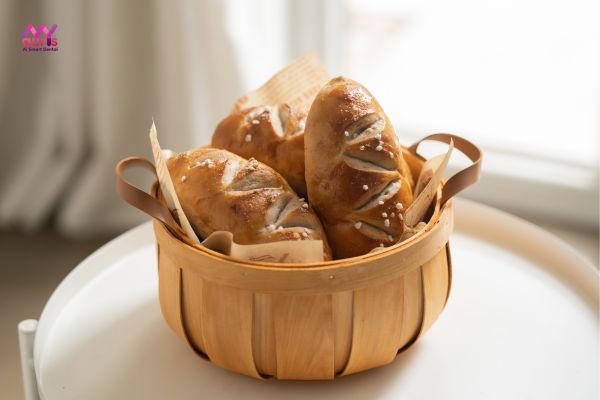
Oatmeal
Oatmeal is not just Ingredients used by women in their diets are also good for the heart and people with gastric reflux. Patients should use oatmeal porridge in the morning to provide abundant energy and nutrients. At the same time, oatmeal rich in natural fiber also helps absorb excess acid after a long night.
Supplement easy-to-digest protein – What should you eat if you have gastroesophageal reflux?
People with gastric reflux should eat easily digestible proteins such as lean, low-fat meats such as chicken breast, pork tenderloin, lean beef, etc. These proteins contribute to neutralizing acid, limiting reflux symptoms.
Yogurt
Yogurt is an extremely good food for the digestive system because it helps the digestive process go faster. Not only that, yogurt is also rich in beneficial bacteria that help balance the intestinal microflora, preventing reflux symptoms.
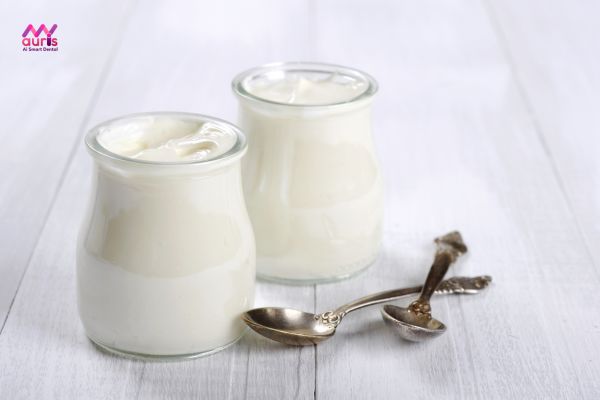
Green vegetables
Green vegetables provide many vitamins, minerals, Fiber in particular helps absorb excess acid secreted by the stomach. Some types of green vegetables are good for people with gastroesophageal reflux and esophageal reflux: mustard greens, spinach, apricot leaves, parsley, dill, broccoli, spinach, perilla, lettuce, celery,…
What should you eat if you have gastroesophageal reflux, especially fruits?
Ripe bananas
Ripe bananas are easy to digest and usually do not cause any harm to the stomach. Bananas help protect the stomach lining by neutralizing the amount of acid secreted by the stomach. Besides, bananas are also rich in fiber, which promotes digestionmarine toxins in digestion. In particular, you should eat thoroughly ripe bananas, eat them 30 minutes after eating and avoid eating banana peppers.
Watermelon, melon – What should you eat if you have gastroesophageal reflux?
These are 2 types of melons that can neutralize acid in the stomach and are recommended by many nutritionists when suffering from gastric reflux. Not only that, supplemented in the right amount and properly, these two types of melons also provide abundant vitamins and minerals to reduce symptoms of heartburn and discomfort.
Apple
Apple contains a lot of pectin – a type of soluble fiber that helps excretion run more smoothly. At the same time, the digestive system is also improved, reducing constipation and reducing stomach acid reflux. You should eat apples that have a sweet taste, avoid eating green, sour fruits.

Ripe papaya – what should you eat with gastroesophageal reflux?
Ripe papaya contains a lot of chymopapain and papain enzyme that has the ability to break down difficult-to-digest proteins. Besides, ripe papaya can also stimulate the digestive system, reduce constipation, indigestion, soothe the stomach, and reduce acid secretion.
Blueberries
This is a fruit rich in vitamin C, fiber and antioxidants. Vitamin C has the ability to help wounds heal quickly and fight inflammation. At the same time, blueberries also have the ability to fight intestinal cancer.
Cucumber
This is a fruit rich in fiber, many minerals necessary for the body such as vitamin c, calcium, folate, Erepsin – a protein that supports digestion. When people with gastric reflux eat cucumbers, it will improve the symptoms of belching, heartburn, heartburn, etc.
Dragon fruit
In dragon fruit there is a large amount of soluble fiber and water and mucus. This amount of mucus acts similarly to a protective layer of the stomach lining to avoid damage from other impacts.
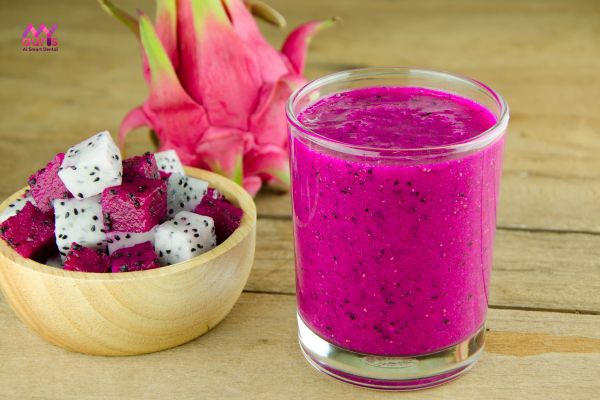
What should people avoid with gastroesophageal reflux?
To avoid a serious condition and increased acid secretion, people should avoid and abstain from the following foods:
- Fat, greasy, fried, processed, fast food: foods rich in cholesterol are difficult to digest and can easily overload the stomach, increasing the pressure on the lower esophageal sphincter and reflux,…
- Sour, astringent, resinous fruits such as figs, persimmons, sapodillas
- Spicy, acidic foods, sour: fruits of the orange family, lemon, grapefruit,…
- Aerated drinks such as soda, carbonated soft drinks,…
- Do not eat a lot of salt
- Do not eat chocolate
- Do not eat beer, alcohol, cigarettes.
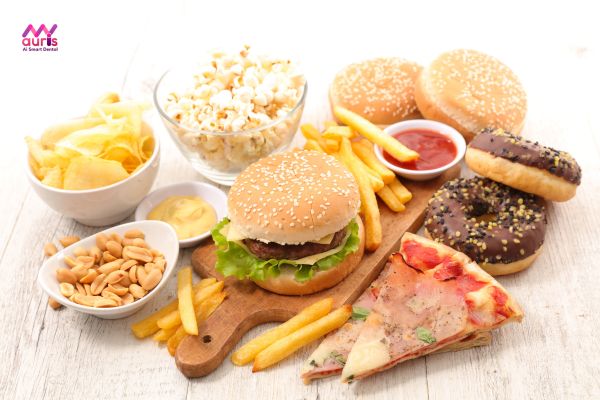
Hopefully with the information in the article about what to eat if you have gastroesophageal reflux disease helps people find good foods for the disease. From there, balancing nutrition and eating helps improve health, improve symptoms, and treat the disease better.
Mr. medium”>





